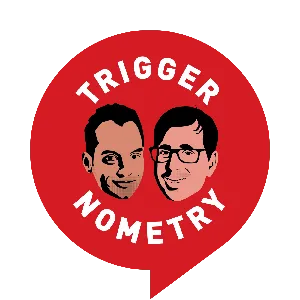Podcast Summary
Witnessing AI's Impact on Science: AI is revolutionizing science by designing proteins, accelerating discoveries, and transforming research jobs.
Artificial intelligence (AI) is no longer a futuristic concept limited to Hollywood or science fiction, but a reality that is already transforming various industries, including science. During a visit to a scientific research laboratory at the University of Washington, I witnessed firsthand how AI is being used to design proteins, potentially revolutionizing the field of science and accelerating discoveries. While AI might not be a daily tool for everyone, it's an essential part of the jobs for many researchers. As AI continues to evolve, it's promising to bring significant changes to various industries, including science, and possibly even our own jobs. It's an exciting time for innovation and progress, and we can expect to see more AI integration in our daily lives.
Revolutionizing Protein Design with AI: AI enables the creation of specific-shaped proteins from scratch, reducing time and resources compared to traditional methods, and offers potential for new therapeutics and treatments.
Artificial intelligence (AI) is revolutionizing the field of protein design by enabling the creation of proteins with specific shapes from scratch, significantly reducing the time and resources required compared to traditional methods. Proteins, made of amino acids, have nearly infinite combinations, making the process of finding the right one for a particular job tedious and time-consuming. Researchers like David Baker and Susanna are using AI, specifically diffusion modeling, to design proteins that can help address health issues, such as neutralizing snake venom for neglected diseases. This process involves starting with a random assortment of amino acids and using AI to build the protein with the desired shape, much like an image generator creating an image from random pixels. This innovation has allowed Susanna to find potential candidates for her snakebite project within six months, compared to the years it would have taken without AI. Overall, AI is a game-changer in protein design, offering the potential for new therapeutics and treatments.
AI's Impact on Protein Design and Future Scientific Discoveries: AI is revolutionizing protein design through data analysis and prediction, while researchers envision AI systems that can read scientific literature and generate new hypotheses, potentially transforming the scientific discovery process.
Artificial Intelligence (AI) is making significant strides in the field of science, particularly in protein design. The shape of proteins and the availability of extensive data from decades of research make this a prime area for AI application. However, not all scientific fields have the same level of data availability or research history. For instance, in the development of new materials for the renewable economy, there is a lack of comprehensive data and organization. Yet, researchers are actively exploring the potential of AI in various fields, including genetics, climate studies, and particle physics. While the current focus is on building models and making predictions from large datasets, some researchers envision a more profound impact of AI on science in the future. They aim to develop AI systems that can ingest scientific literature and generate new hypotheses, revolutionizing the way we approach scientific discoveries. Ultimately, the application of AI in science is a rapidly evolving field, and its future potential is vast and exciting.
AI in Scientific Discovery: AI assists scientists in analyzing data, generating hypotheses, and planning experiments, but the debate continues on whether it could replace them entirely
AI is increasingly being explored as a tool for scientific discovery. Researchers are using AI to analyze vast amounts of data, generate hypotheses, and even plan and carry out experiments. However, the debate continues on whether AI could eventually replace scientists entirely. Some argue that AI could help scientists cover new ground and handle the infinite amount of work required in updating and reanalyzing existing research. Others worry about the potential loss of jobs and the unique human experience of conducting experiments and learning from failure. Regardless, AI is expected to play an increasingly significant role in the scientific process, particularly in areas where data is abundant and human resources are limited.
Acknowledging Shortwave Plus listeners and thanking sponsors Mint Mobile and Rosetta Stone: NPR's Shortwave show discusses AI's impact on our lives, acknowledges supporters, and introduces sponsors Mint Mobile's affordable wireless plans and Rosetta Stone's language learning solution with discounted lifetime memberships
This episode of Shortwave from NPR featured a discussion about AI with Jeff O'Neal. The team behind the show took a moment to acknowledge and thank their Shortwave Plus listeners for their support. They produce the show with the help of Burleigh McCoy, Rebecca Ramirez, Jeff, Maggie Luthar, Beth Donovan, and Anya Grundmann. Mint Mobile was recognized as an NPR sponsor, offering premium wireless plans starting at just $15 a month. Inflation is a current concern, and Mint Mobile aims to help alleviate some financial stress in this area. Additionally, Rosetta Stone was introduced as another NPR sponsor, offering a language learning solution for busy individuals. Their lifetime membership comes with a 50% discount and access to 25 language courses. Overall, the episode highlighted the importance of AI in our daily lives and the various ways NPR's sponsors support the production and broadcast of the show.






